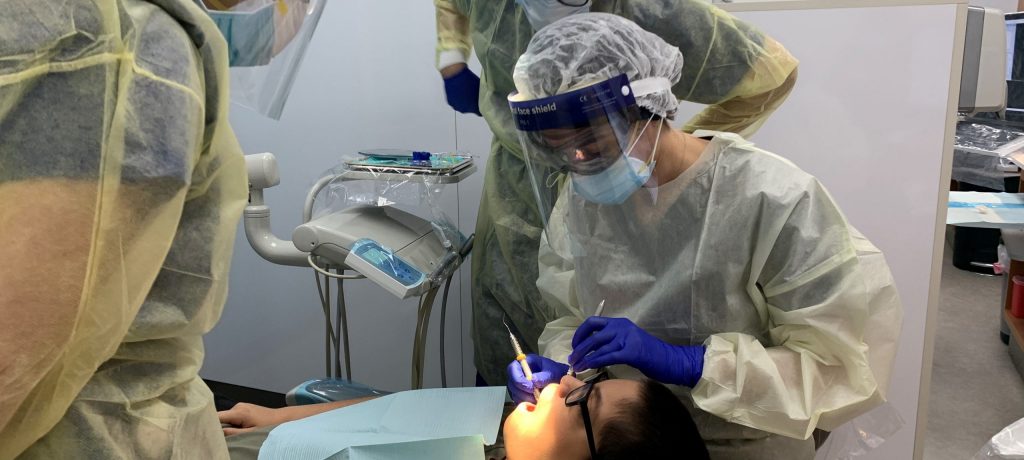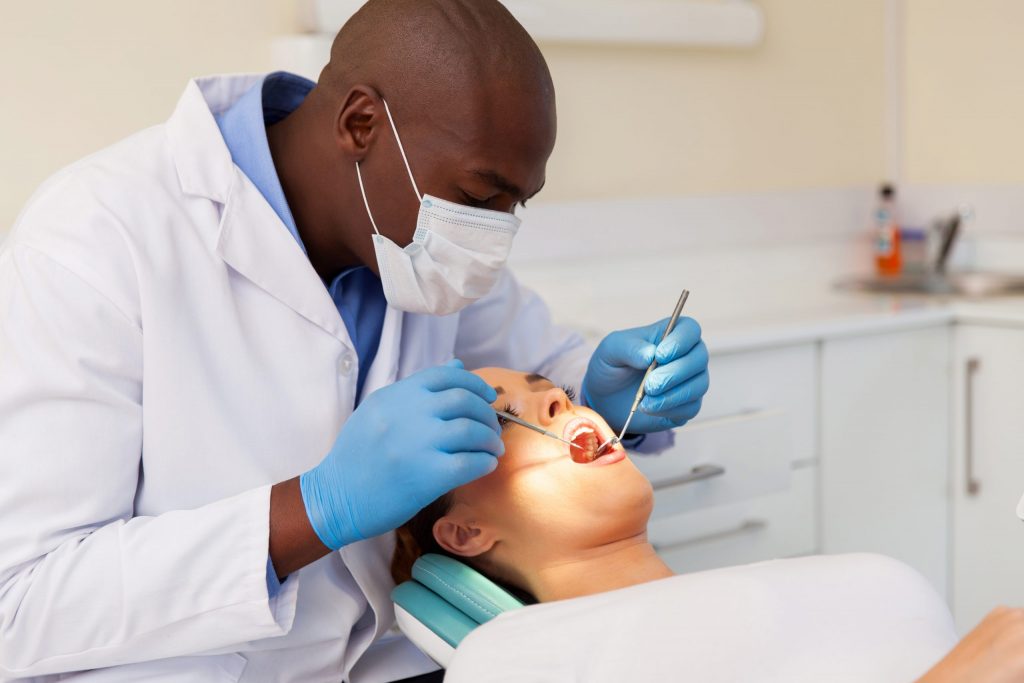Information Library
Start Reading

“I think about my dentist like I do my car mechanic,” a man said. “If I’ve got problems, I’ll go. But if everything’s running just fine, why bother?”

Was he right? Do you have to go to the dentist every six months, regardless of how your mouth is “running”?
Strictly speaking, the answer is no.
The six-month recall interval (the time between two consecutive visits) should not be seen as a surefire, one-size-fits-all best practice. Indeed, some patients—people who smoke or who have diabetes, for instance, or women who are pregnant—should see their dentist every three months or more.
But regularly going to the dentist is necessary for achieving and maintaining optimal dental and oral health. The CDC recommends a dentist visit for everyone “at least once a year.”
At Penn Dental Medicine, we understand some people feel reluctant about visiting the dentist. Fitting a dental check up into a busy schedule can be challenging. Worries about discomfort, pain, or blood during dental treatments are common. And many Americans, with or without dental insurance, skip dental visits due to cost concerns.
Responsible dental professionals can and will work with patients to address these and other issues. But even though the “every six months” standard is more a good rule of thumb than a hard and fast rule, the answer to the question, “Do you have to go to the dentist on a regular basis?” remains an emphatic yes!
Visiting the dentist when your teeth and mouth look and feel fine is arguably the best time to go. Why? Because your routine cleaning and dental exam is an investment in making sure they stay that way.
Here are three reasons not to delay dentist visits until you’re having problems.

Even people who faithfully brush their teeth for two minutes twice a day and floss once a day need regular professional cleanings. Regular, nonemergency dental visits are opportunities for your dental hygienist or dentist to clean your teeth.
Brushing and flossing remove much plaque—the sticky bacterial film always forming on your teeth—but not all of it. Plaque between the teeth and under the gum line can be especially difficult to remove. As plaque builds up, it produces acids that demineralize tooth enamel, and it hardens into tartar (also called calculus). Tooth decay and gum disease result.
As important as your toothbrush and floss are to daily oral hygiene, they are no match for tartar. Only a dentist’s manual or ultrasonic scaler or curette can remove it.
Consumers can buy plaque scrapers, but using these specialized tools yourself is dangerous. You could cause permanent damage to your teeth and gums. Leave the plaque scraping to trained dental professionals.

In addition to getting your teeth as clean as possible, regular dental visits are chances for your dentist to spot signs of dental and oral health problems before they become more serious and difficult to treat.
Certainly, dentists can catch and fill small cavities before they become bigger. But dentists will also examine your gums for signs of disease you may not see. They will check for red or white patches in your mouth and lumps in your neck that could indicate oral cancer or other cancers. Other diseases and conditions can also have symptoms that appear in the mouth.
Regular dental visits are preventive, proactive care. Avoiding oral health problems is always preferable to treating them. When detected early, many problems can be treated more easily and affordably.
The more you visit your dentist, the more they get to know you and your mouth. As a result, the better they can advise you about your specific dental and oral health needs.
For example: If you’re having trouble following a routine oral hygiene plan at home, your dentist can work with you on finding solutions that fit your situation.
Or suppose you want to whiten your teeth or need to straighten them. Your regular dentist, knowing your mouth as well as they do, can give you accurate information about your options and refer you to trusted specialists as needed.
How often should you go to the dentist? Only a dental professional can determine the recall interval that best suits your oral health needs. But no matter how long it’s been since your last dental check up, scheduling your next one now, whether or not you’re experiencing teeth and mouth problems, is important.
You do have to go to the dentist—but not just any dentist. Choose one who:
For more guidance on finding the right dentist for you to visit, download Penn Dental Medicine’s free eBook, The Affordability of Truly Comprehensive Dental Care: How to Secure a Patient-Focused Dentist Office.